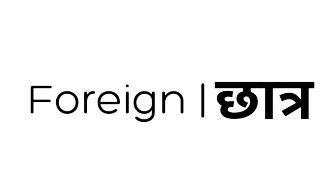Your cart is currently empty!
How to Apply for the GKS Scholarship 2025: A Complete Guide for Indian Students
The Global Korea Scholarship (GKS) is a fully funded opportunity for students worldwide to study in South Korea. If you’re an Indian student dreaming of studying in Korea for free, this scholarship is your golden ticket! Here’s everything you need to know about applying for the GKS Scholarship 2025.
What is the GKS Scholarship?
The Global Korea Scholarship (GKS) is funded by the South Korean government to promote international education and cultural exchange. It covers full tuition, flight tickets, a monthly stipend, and more. This scholarship is available for both undergraduate and graduate students.
Benefits of the GKS Scholarship
- Full tuition fee coverage
- Free round-trip airfare
- Monthly stipend (~KRW 1,000,000)
- Medical insurance
- Korean language training for one year
- Research and settlement allowances
Undergraduate vs. Graduate GKS
- Undergraduate: 5-year program (1 year of Korean + 4 years of degree)
- Graduate: 3–4 years (1 year of Korean + 2–3 years for Master’s/PhD)
Eligibility Criteria for GKS 2025
To apply, you must meet these requirements:
General Requirements
- Nationality: Must be an Indian citizen.
- Academic Requirements: Minimum 80% in the last academic qualification (or in the top 20% of your class).
- Age Limit:
- Undergraduate: Below 25 years
- Graduate: Below 40 years
- Health & Character Requirements: Must be physically and mentally fit.
Note: If your CGPA is below 80% (e.g., 7.5/10), you may still qualify if your university provides a conversion certificate or a class rank certificate showing you are in the top 20%.
Application Process for GKS 2025
1. Choose the Application Track
- Embassy Track: Apply through the Korean Embassy in India (you can select three universities).
- University Track: Apply directly to a Korean university (only one choice, but less competition).
2. Gather the Required Documents
- Academic Transcripts & Degree Certificate (notarized and translated into English/Korean)
- Statement of Purpose (SOP)
- Letters of Recommendation (LORs)
- Medical Certificate
- Proof of Citizenship (Passport/Birth Certificate)
3. Submit the Application
- Embassy track: Submit to the Korean Embassy in India.
- University track: Submit directly to your chosen Korean university.
Pro Tip: Embassy track is highly competitive but allows multiple university choices, while university track has higher chances of direct acceptance.
Selection Process & Interview Tips
The GKS selection process has three rounds:
- 1st Round: Document screening by the Korean Embassy or university.
- 2nd Round: Embassy track applicants go through an interview.
- 3rd Round: Final selection by NIIED (Korean Education Ministry).
Common GKS Interview Questions
- Why do you want to study in Korea?
- Why did you choose this major?
- How will you contribute to Korea-India relations?
- What are your career goals after graduation?
Tip: Answer confidently, personalize your responses, and show a clear connection between your goals and studying in Korea.
Common Mistakes & How to Avoid Them
Many students get rejected due to avoidable mistakes. Here are some common errors and tips to prevent them:
- Not notarizing documents properly → Always follow the official guidelines.
- Generic SOP → Personalize your SOP with real experiences.
- Choosing random universities → Research university programs before applying.
- Submitting incomplete applications → Double-check all documents before submission.
Life in Korea as a GKS Scholar
GKS scholars experience a vibrant academic environment, cultural immersion, and career opportunities in Korea. Here’s what life is like:
Stipend & Living Costs
- Scholars receive KRW 1,000,000/month (~₹60,000), which is enough for basic living expenses.
- Part-time jobs are allowed after the first year of language training.
Challenges Faced by Indian Scholars
- Language Barrier – Learning Korean is essential for daily life.
- Cultural Differences – Adjusting to Korean etiquette and academic expectations.
- Academic Pressure – Korean universities have rigorous coursework.
Tip: Engage in cultural exchange programs, make local and international friends, and practice Korean regularly to adapt faster!
Final Tips for GKS 2025 Applicants
- Start preparing early. The competition is tough, so don’t wait till the last moment.
- Triple-check your documents. Incomplete applications are rejected immediately.
- Research universities properly. Choose the best fit for your career goals.
- Join student forums & Telegram groups. Connect with past GKS scholars for guidance.
Where to Find Official Information?
- Study in Korea Official Website
- Korean Embassy in India’s official website
Still have questions? Drop a comment or join a GKS study group!
🚀 Good luck with your GKS 2025 application! 🇰🇷
